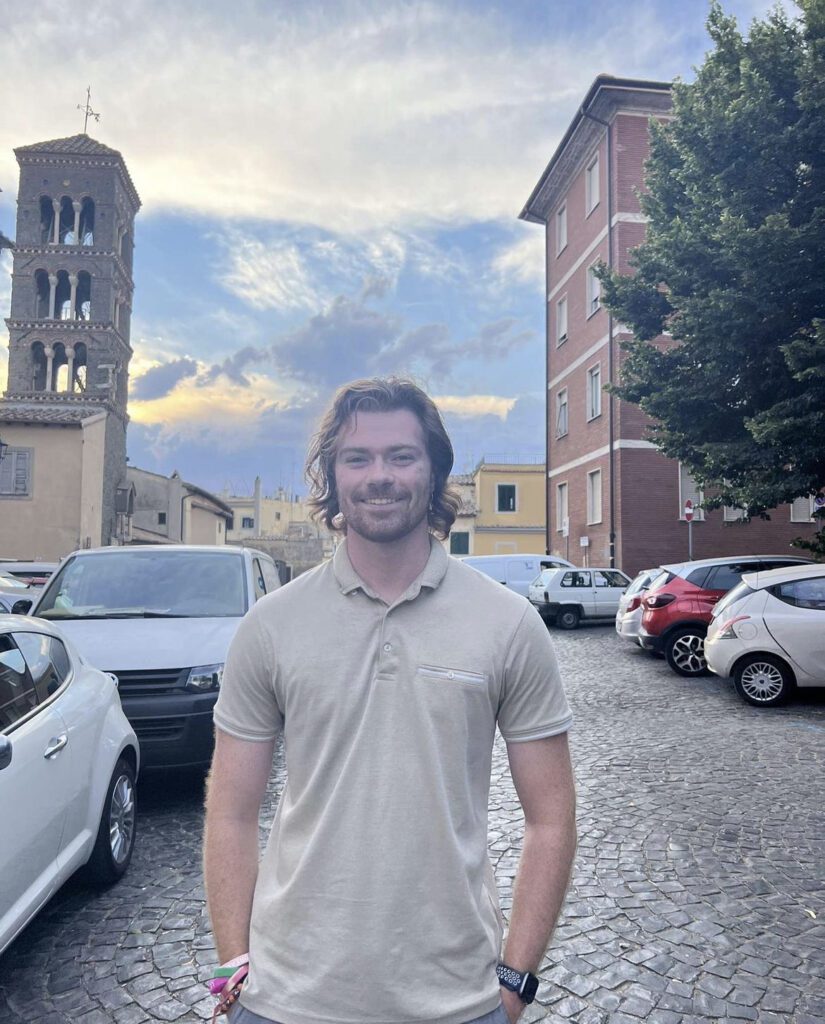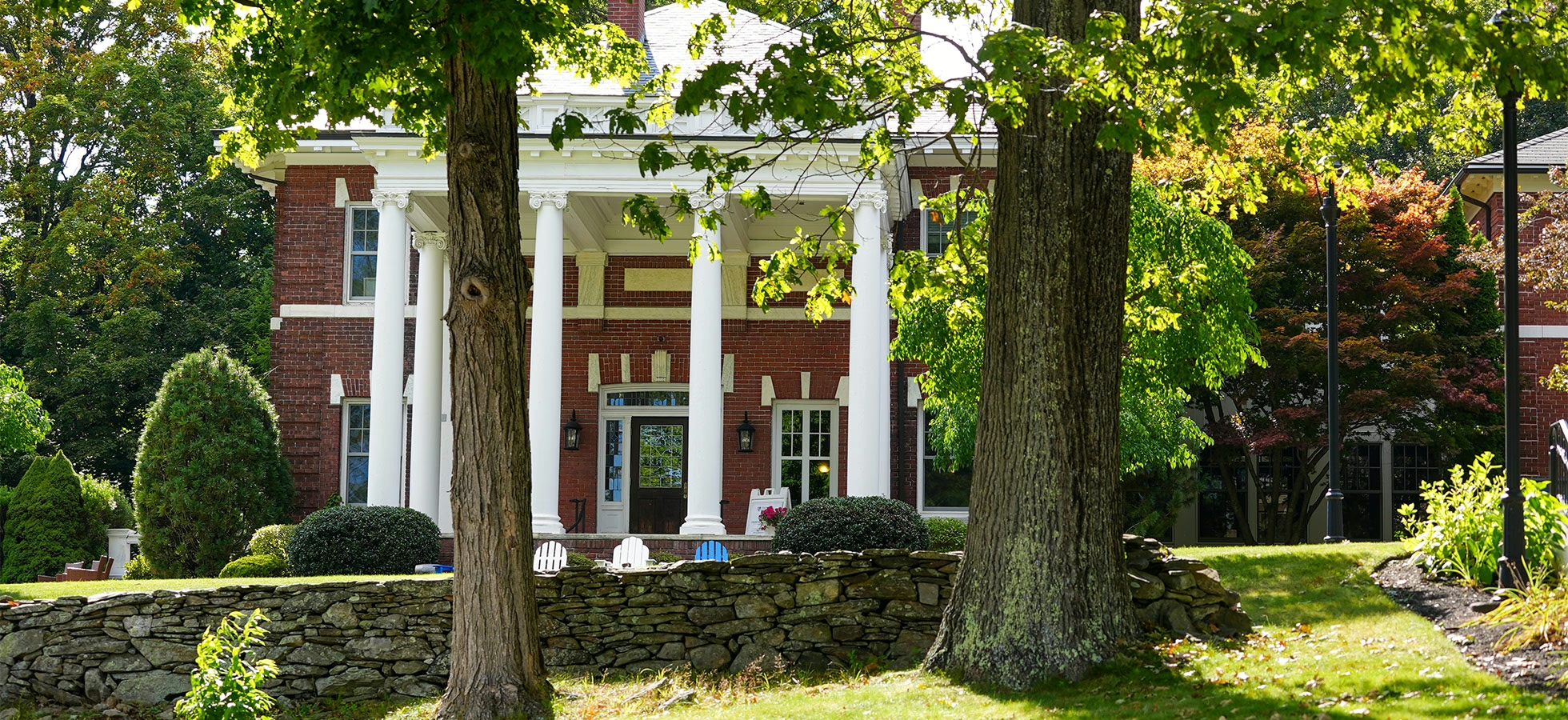Graduate Faster With…
Summer Semester at Assumption
Accelerate Your Degree Program
Get ahead in your academic journey or explore interesting topics with a summer semester.
Complete a full semester curriculum in just six weeks with accelerated courses that can be taken as either synchronous or asynchronous remote learning options.
Flexible Learning Opportunities
All Summer Semester courses are offered remotely through the University’s learning management system, Brightspace.
- Fully synchronous courses are held at a scheduled day and time via Zoom, and attendance is expected.
- Fully asynchronous courses allow students to engage with the course at flexible times that work for them.
Registration
- Assumption students can register for the Summer Semester around the end of March. Summer Semester registration will remain open until late May.
- Not an Assumption student, but still interested? You can register by filling out the form below. Questions can be directed to the Registrar’s office or by calling 508-767-7355.
Summer Semester I and II
UNDERGRADUATE SUMMER 2026
Session I – Tuesday, May 26 – Friday, July 3
Session II – Monday, July 6 – Friday, August 14
GRADUATE SUMMER 2026
Session I – Tuesday, May 26 – Friday, July 3
Session II – Monday, July 6 – Friday, August 14
Summer at Assumption
Course Descriptions
Assumption’s online and summer day courses provide you the opportunity to complete a semester-long course in six weeks with smaller class sizes at a reduced cost per course. Whether a student seeks to accelerate his/her degree program, catch up, or simply focus on a particular course, this is an opportunity worth exploring. Online registration will open in March 2025.
The courses offered during the summer are the same versions as their fall or spring semester counterparts, taught by the same professors, and provide the same level of intellectual rigor. As such, no special permission is needed for Assumption students to “count” these courses as part of their curriculum. The only real difference is the summer classes cost less than the fall and spring versions.
All courses are three credits, except where noted.
Summer Session Course Offerings
Summer Session I Course Descriptions
Synchronous via Zoom
| Course | Title |
| MAT-114K-01 | ELEMENTARY FUNCTIONS |
Asynchronous Online via Brightspace
| Course | Title |
| ACC-125K-01 | FINANCIAL ACCOUNTING |
| ANT-131K-01 | CULTURAL ANTHROPOLOGY |
| ARH-125K-01 | HISTORY OF WESTERN ART |
| ASL-101K-01 | SIGN LANGUAGE I |
| CRM-130K-01 | INTRO CRIMINAL JUSTICE SYSTEM |
| CRM-160K-01 | CRIMINOLOGY |
| CRM-495K-01 | POLICE ACADEMY SEMINAR |
| CSC-117K-01 | INTRO TO PROGRAMMING |
| ECO-115K-01 | STATISTICS |
| ENG-130K-01 | WRITING IN THE UNIVERSITY |
| ENG-140K-01 | LITERATURE & ITS INTERPRET |
| ENG-252K-01 | THE MYTHIC IMAGINATION |
| HIS-114K-01 | WORLD HISTORY I |
| HSC-360K-01 | LEGAL & ETHICAL ASPECT HEALTH |
| HUS-119K-01 | INTRO HEALTH & HUMAN SERV |
| HUS-121K-01 | HUMAN DEVELOP & DISABILITY |
| HUS-200K-01 | ADDICTION:ETIOLOGY,ASSESSMENT |
| HUS-219K-01 | REHAB STRATEGIES & INTERVEN |
| HUS-305K-01 | CLIENT INFORMATION & ASSESSME |
| MGT-100K-01 | INTRODUCTION TO MANAGEMENT |
| MGT-230K-01 | DECISION ANALYTICS |
| MKT-101K-01 | PRINCIPLES OF MARKETING |
| MKT-308K-01 | CONSUMER BEHAVIOR |
| MKT-312K-01 | SALES MANAGEMENT |
| MKT-326K-01 | DIGITAL MARKETING STRATEGIES |
| PHI-100K-01 | SOCRATES & SEARCH FOR TRUTH |
| PSY-101K-01 | GENERAL PSYCHOLOGY |
| PSY-224K-01 | STATISTICS |
| PSY-253K-01 | PSYCHOLOGY OF LEARNING |
| SOC-121K-01 | PRINCIPLES OF SOCIOLOGY |
| SPA-201K-01 | SPANISH III |
| THE-100K-01 | INTRODUCTION TO THEOLOGY |
| THE-202K-01 | MORAL THEOLOGY |
Summer Session II Course Descriptions
Synchronous via Zoom
| Course | Title |
| MAT-117K-01 | CALCULUS I |
Asynchronous Online via Brightspace
| Course | Title |
| ACC-126K-01 | MANAGERIAL ACCOUNTING |
| ASL-102K-01 | AMERICAN SIGN LANGUAGE II |
| BIO-110K-01 | NUTRITION |
| BUS-399K-01 | INTERNSHIP IN BUSINESS |
| CRM-495K-01 | POLICE ACADEMY SEMINAR |
| CYB-115K-01 | CYBERSECURITY FUNDAMENTALS |
| ENG-130K-01 | WRITING IN THE UNIVERSITY |
| ENG-140K-01 | LITERATURE & ITS INTERPRET |
| ENG-304K-01 | BUSINESS & TECH WRITING |
| MKT-327K-01 | SOCIAL MEDIA MARKETING |
| MUS-126K-01 | GLOBAL POP |
| PHI-151K-01 | ETHICS & THE GOOD LIFE |
| SPA-102K-01 | SPANISH II |
| THE-100K-01 | INTRODUCTION TO THEOLOGY |
Tuition
Assumption offers a high-quality, asynchronous, personalized experience for summer students to accelerate their degree.
Tuition and Fees Summer 2025
- A three-credit undergraduate course is $1,910.
- A four-credit undergraduate course is $2,547.
- A six-credit undergraduate course is $3,820.
- No additional fees will be charged for UG summer classes.
- If a UG student is taking a graduate course, the rate for that course is $1,750 per credit or $5,250 per 3 credit course.
- Science courses may involve a lab fee.
Payment Deadlines
- Payment for Summer 1 and 2 courses must be received by 11:59 pm on Tuesday, May 21, or students will be unenrolled on May 22.
- Payment for Summer 2 courses must be received by 11:59 pm on Tuesday, June 30, or students will be unenrolled on July 1.
Tuition Refunds
Those students who enroll and then withdraw from the Summer Program are provided refunds depending upon when the student withdraws:
- Before the start of classes – 100%
- During the first week – 60%
- During or after the second week – no refund
Policy on Incompletes
Incomplete (I) is given only when a student, because of a documented illness or serious emergency at the end of the semester, has not been able to complete the requirements of her/his course by the grade deadline. Incompletes are granted by the Dean of Undergraduate Studies in consultation with the pertinent faculty member. Faculty overseeing incompletes must file a change of grade form before the end of the sixth week of the following semester. All unresolved incompletes turn to Fs after that date.
General Policies for the Summer Semester
There is no week-long add/drop period for summer semesters, as with fall/spring terms. Withdrawals will be dropped (not posted to the transcript) if completed in the first week of classes, and students will receive a 60% refund on tuition paid in that first week. After that time, the course will appear on the transcript, with a W indicating a withdrawal.
Students may withdraw from a summer course through the second to last day of class, with the email permission of the instructor. No academic advisor approval is required. Failure to attend classes or participate in online work does not constitute a withdrawal. A timely, formal request via email to the Registrar, Heather Pecoraro, is required. After the first week of the semester, a student who withdraws from a class will have a “W” recorded on his or her transcript.
The pass/no credit option applies to summer courses, and the fall/spring policy applies. The deadline to request pass/no credit is the same as the deadline to withdraw from a course.
Frequently Asked Questions
Is the summer semester open to non-Assumption students?
Absolutely! Assumption University welcomes all students enrolled in a recognized undergraduate institution of higher learning to take courses during the summer. Students who graduate from high school in June 2025, and are accepted to a recognized institution of higher learning, are invited to take courses during the second session to advance their academic studies.
Which classes are offered, and where will they be held?
Assumption University offers a variety of summer classes in business, english, mathematics, psychology, theology, and more. Many classes will help fulfill students’ general education obligations and they all will be held online through synchronous and asynchronous remote learning.
How many classes may I take?
Due to the accelerated nature of the courses, the University strongly recommends that students do not take more than two classes per session.
Will credits earned at Assumption transfer to the institution of higher learning at which I am enrolled?
Students should contact the University to which they would like to transfer credits to ensure that the credits will transfer.
Is wireless internet available to students enrolled in the summer program?
All academic areas and residence halls offer wireless internet access. Wireless Internet is also available in public areas on campus, such as Charlie’s (in Hagan Campus Center), the Emmanuel d’Alzon Library, and Taylor Dining Hall.
Will summer students have access to the Plourde Recreational Facility?
Program students may use the Plourde Recreation Center free of charge during the session in which they are enrolled. The Plourde offers a six-lane swimming pool, an aerobics/dance studio, a jogging/walking indoor track, a fully-equipped fitness center, locker rooms, and saunas. To use the Plourde, you must visit the Public Safety Office (lower level of Kennedy Memorial Hall) with your student ID and proof of course registration. Student ID cards are required to access the Plourde. Call (508) 767-7072 for hours and information.
How do I apply?
Assumption students can use Student Planning to register for summer courses in the same way that they register for courses during the academic year. Approval from an academic advisor is required for course registration. Non-Assumption students may register using the link above.
Important Note: Assumption students will receive email notification of their tuition bill and directions for payment through the Student Account Center via MyPortal.Assumption. Non-Assumption students will also receive an electronic tuition bill, with directions for payment. Students have completed the registration process only when payment is received. Students with outstanding balances will be unenrolled from courses.
Students have completed the registration process only when payment is received. Students with outstanding balances will be unenrolled from courses.
Learn why students spend their summer at Assumption

“The six-week summer program provided me with a fast-paced learning environment that I enjoyed thoroughly. The online synchronous and asynchronous learning options allowed me the time and space to get the work done on my own time, which also pushed me to further develop time management and organizational skills since I had to push myself to get things done. I would definitely recommend this to anyone who needs to catch up or wants to get ahead.”
Connor Howells
Graphic Design ’23

